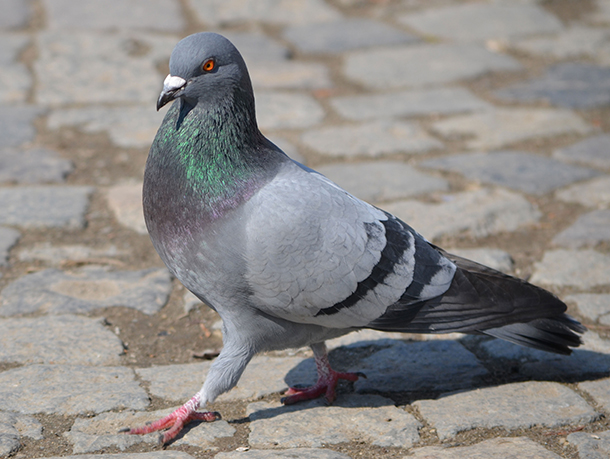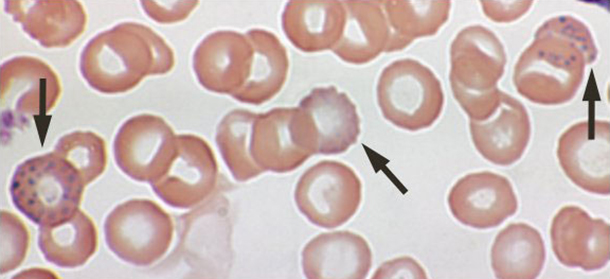Science Note: Pigeons Flag Lead Pollution
Air Date: Week of October 21, 2016

According to the Chemosphere study, feral pigeons could be important bioindicators for lead exposure. (Photo: Razvan Socol, Wikimedia Commons CC BY-SA 3.0)
Lead exposure, even at low levels, affects brain development, memory and social skills in children. But as Jay Feinstein reports in this week’s Note on Emerging Science, lead also affects urban wildlife, and a new study suggests pigeons may be good indicators for environmental lead levels.
Transcript
CURWOOD: It’s Living on Earth, I’m Steve Curwood. In a minute, don’t be deceived by the purring. Your kitty has the heart and instincts of a lion. But first this note on emerging science from Jay Feinstein.
[SCIENCE NOTE THEME]
FEINSTEIN: Exposure to the toxic metal lead, even at low levels, has been shown to affect intelligence, brain development, and social skills in children.
But lead doesn’t only affect humans. A recent study published in the journal Chemosphere assessed pigeons in New York City as possible indicators of environmental lead levels, since they share our roads, breathe our air, and eat our food.
Scientists tested blood lead levels of 825 visibly ill pigeons identified by citizen scientists in various New York City neighborhoods. In many areas, levels of lead in the pigeons correlated with the average rates of blood lead in children reported by the health departments.

Basophilic stippling in red blood cells in an individual with elevated blood levels (Photo: Herbert L. Fred, MD and Hendrik A. van Dijk, Wikimedia Commons CC BY 2.0)
For example, both children and pigeons exhibited higher lead levels in areas such as Soho and Greenwich Village and lower levels in Harlem. The study suggests that this may be due to traffic density.
The study also found higher levels in the summer in both children and pigeons, perhaps related to more summer activity outside, or frozen snowy ground in winter making toxins less accessible.
The scientists note that monitoring pigeon lead levels will help us understand where the neurotoxin’s found, and suggest better ways to prevent its damage.
That’s this week’s note on Emerging Science. I’m Jay Feinstein.
[SCIENCE NOTE THEME]
Links
Living on Earth wants to hear from you!
Living on Earth
62 Calef Highway, Suite 212
Lee, NH 03861
Telephone: 617-287-4121
E-mail: comments@loe.org
Newsletter [Click here]
Donate to Living on Earth!
Living on Earth is an independent media program and relies entirely on contributions from listeners and institutions supporting public service. Please donate now to preserve an independent environmental voice.
NewsletterLiving on Earth offers a weekly delivery of the show's rundown to your mailbox. Sign up for our newsletter today!
 Sailors For The Sea: Be the change you want to sea.
Sailors For The Sea: Be the change you want to sea.
 The Grantham Foundation for the Protection of the Environment: Committed to protecting and improving the health of the global environment.
The Grantham Foundation for the Protection of the Environment: Committed to protecting and improving the health of the global environment.
 Contribute to Living on Earth and receive, as our gift to you, an archival print of one of Mark Seth Lender's extraordinary wildlife photographs. Follow the link to see Mark's current collection of photographs.
Contribute to Living on Earth and receive, as our gift to you, an archival print of one of Mark Seth Lender's extraordinary wildlife photographs. Follow the link to see Mark's current collection of photographs.
 Buy a signed copy of Mark Seth Lender's book Smeagull the Seagull & support Living on Earth
Buy a signed copy of Mark Seth Lender's book Smeagull the Seagull & support Living on Earth

